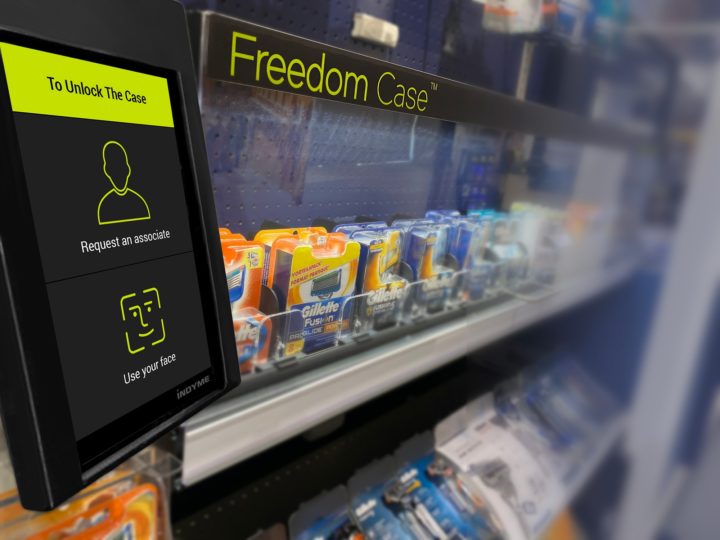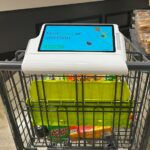
You’ve probably seen it in a store near you – baby formula, cosmetics or even bottles of detergent locked up and available only with the help of an employee, if you can find one. It’s one way retailers are trying to protect themselves against theft, though it doesn’t make for a very pleasant or efficient shopping experience. So one company has come up with a way to give you access to these high-value products, while also preventing theft – and even giving you some coupons in the process.
The loss prevention technology company Indyme has filed a patent application for a self-serve locked case that will keep products secure, while also giving you easy access to them. And while it has your attention, it could offer you coupons, too.
Instead of having to ask for help to access locked-up items, the “Freedom Case” will let you unlock merchandise by inputting a code texted to you or accessed on the store’s app, swiping a loyalty card, or just smiling at the camera and allowing it to scan your face. That way, the case will “know” who you are, making you less likely to steal anything inside – or get away with it. Once the case is open, it will be able to tell what products you grab, how long you linger, and will notify store staff of any suspicious behavior.
“By uniquely identifying each user, and logging their behavior over time, Freedom Case enables your honest shoppers while disabling would-be offenders,” Indyme explains.
Some may find it a little creepy to have their face scanned just so they can buy some Tide. But it beats wasting your time, Indyme argues. It conducted a survey of shoppers who’ve come across locked cases in stores, and found that the average wait time to get help is a minute and 45 seconds – a long time, considering Indyme found that “anything over one minute leads to dissatisfaction.” The survey also found that more than half of shoppers who come across merchandise in a locked case will buy what they need somewhere else instead, while a quarter will buy something else altogether and one in five won’t buy anything at all.
So giving up some personal information to unlock a case is something of a trade-off for convenience. It also allows for an interesting couponing component. “The invention by its very nature has a ‘captive audience’ in terms of a shopper standing in front of a fixture containing specific merchandise,” the patent application reads. Together with the ability to consider your demographic information or purchase behavior, “this is an ideal environment for targeted advertising to this individual in an attempt to influence their purchase behavior.”
So the patent documentation describes a “dynamic couponing” system in which personalized coupons can be dispensed once you’ve opened the case. If you take a particular item off the shelf, an automated coupon dispenser might spit out an offer for a different brand, or a digital coupon could be pushed to your linked loyalty account. If your loyalty information indicates you’re a “VIP” shopper, you might get a higher-value offer than others do. And if you close the case without selecting anything at all, you might get a coupon as an enticement to change your mind.
The current process of keeping high-value products locked up in stores is “not only costly and labor intensive for retailers, but it’s time consuming, frustrating, and inconvenient for the shopper, which nearly always leads to a horrible customer experience,” Indyne explains. So it says its system makes things easier for shoppers and employees alike.
And these days, some shoppers won’t even think twice about giving out their phone number or having their face scanned, if it means not having to wait around for help. “The recent trend of people willing to trade privacy for convenience is advantageous to the invention,” the patent application notes. “More and more people are willingly surrendering personal information to more easily access” various services. “This invention capitalizes on this trend by requiring shoppers to provide personal identifying information in exchange for the convenience of unfettered access to merchandise.”
So if your time is more precious to you than your privacy, the Freedom Case may be for you. And if its coupons can help you save money along with saving you time – even better.
Image source: Indyme














Or they could just do it the right way – stop punishing the innocent (by making them have to wait for help or use these systems) and instead just punish those who are doing the wrong thing.
If the stores didn’t let those who can’t follow the rules get away with it, the problem would disappear pretty quickly…